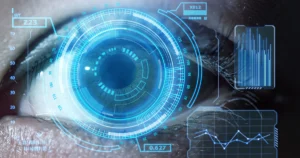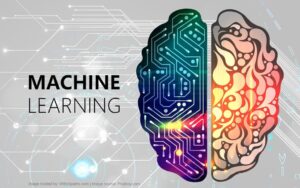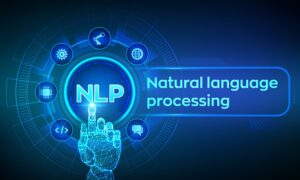Artificial intelligence (AI) is no longer just a concept that scientists and researchers explore in labs and science fiction. Today, it is actively transforming the way people live, work, use technology, and operate across various sectors. Often, AI systems can absorb vast amounts of data, identify patterns, and make decisions faster and more accurately than humans. This capability creates new opportunities in healthcare, education, transportation, entertainment, and countless other sectors. AI is not only used in high-tech sectors but is also integrated into everyday applications and services that people use without even realizing it. Understanding the practical applications of AI will help people understand why it has become one of the most important transformations in our world today.
AI in Healthcare and Medical Diagnosis
Artificial intelligence (AI) is one of the most crucial and life-changing technological applications in healthcare. AI algorithms can analyze medical images, identify trends in a patient’s medical history, and even predict the risk of disease before symptoms appear. For example, AI systems can interpret X-rays, MRIs, and CT scans with astonishing accuracy and identify indicators of diseases like cancer. These devices can help doctors identify the causes of a disease more quickly and accurately, leading to earlier treatment and better patient outcomes. Pharmaceutical research also utilizes AI, analyzing massive data sets and identifying patterns to swiftly identify new medications. Virtual AI assistants are capable of offering basic medical advice, scheduling appointments, and reminding patients to take their medications. This process process makes healthcare easier and more tailored to individual needs.
AI Applications in Transportation and Autonomous Vehicles
AI has dramatically changed the transportation sector, particularly with the advent of self-driving cars. AI helps autonomous vehicles evaluate data from cameras, radar, and sensors, enabling them to navigate, avoid hazards, and make real-time driving decisions. AI technology also helps improve public transportation systems, predict traffic congestion, and improve traffic conditions. AI helps optimize logistics delivery routes, save fuel, and shorten delivery times. This is beneficial for both businesses and the environment. AI, combined with modern transportation technology, promises safer roads, fewer human errors, and faster travel in the future.
AI and Fraud Detection in the Banking Sector
AI is crucial for banks and other financial institutions because it helps them provide better services, reduce risks, and improve security. Fraud detection is one of the most important applications of AI in the financial sector. AI models can monitor millions of transactions in real time and detect unusual trends that could indicate fraud. By learning from historical data, these systems can immediately flag suspicious transactions for further investigation, helping prevent financial losses. AI also enables algorithmic trading, where computers make rapid investment decisions based on market trends and data analysis. Furthermore, banks use AI chatbots to assist customers, answer questions, and guide them through financial transactions. The process is convenient and saves time and money.
AI and Personalized Learning in the Classroom
AI is also very useful in education. AI learning platforms can understand students’ strengths and areas for improvement and then design appropriate lessons and exercises based on their learning style and progress. This tailored learning platform ensures that students receive the right challenge and support, maintaining their interest and improving their knowledge retention. AI systems can also perform tasks such as grading homework and recording teacher attendance, allowing teachers to focus on teaching. AI language learning apps can also provide instant feedback on grammar and pronunciation, making learning more engaging and accessible to people around the world. As AI technology continues to develop, it has the potential to make learning environments more user-friendly and practical for learners of all backgrounds.
AI in Entertainment and Content Creation
Artificial intelligence (AI) is having a giant impact on the entertainment industry. Streaming services use AI to analyze people’s viewing patterns and recommend movies, shows, or music that suit their tastes. AI makes games more realistic by creating more responsive and intelligent characters that the player cannot control, which increases immersion. AI technology can now create realistic images, music, and even articles, changing the way people create content. These technologies can inspire writers, musicians, and artists or help them with repetitive tasks. AI is also being applied to video editing, color correction, and special effects, making it easier for small creators to produce high-quality work. Creativity and AI-driven efficiency are transforming the way content is created and consumed.
AI in Stores and for Customers
Retailers are using AI to improve the customer experience and run their businesses more efficiently. AI-powered recommendation systems use your browser history, previous purchases, and even your current activity to recommend products. Virtual shopping assistants can help customers navigate online stores, answer their questions, and recommend relevant products. In physical stores, AI-powered cameras and sensors can monitor inventory, detect theft, and analyze customer behavior to optimize store layout and product placement. AI-powered predictive analytics can help stores plan sales, manage inventory, and predict future demand. By combining personalized experiences with operational efficiency, AI helps stores provide better service while simultaneously reducing costs.
Conclusion
AI is no longer a thing of the future; it is a useful tool that transforms many aspects of life and work. AI is making many sectors, including healthcare, transportation, education, entertainment, retail, and environmental protection, faster, smarter, and more efficient. These applications demonstrate the flexibility of AI and how it can help solve problems on both a personal and global scale. AI is transforming the future of technology and human ingenuity. However, its rapid rise raises serious ethical, privacy, and employment issues. By understanding these applications, individuals and businesses can better adapt to and benefit from an AI-driven world.
FAQs
1. What are the most common uses of AI today?
The most common applications include recommendation algorithms on streaming sites, virtual assistants like Siri and Alexa, and AI-powered fraud detection in banks.
2. How is AI improving healthcare?
AI contributes to healthcare by helping doctors diagnose illnesses, evaluate medical images, predict disease risk, and support drug development. This makes treatments faster and more accurate.
3. Are people already using self-driving cars?
Yes, self-driving cars are being tested and, in some cases, they are even being used in limited scenarios. However, due to safety and regulatory concerns, they are not yet widely deployed.
4. Can artificial intelligence contribute to the safety of the planet?
Yes, AI helps maintain healthy ecosystems by monitoring climate change, tracking deforestation, improving agriculture, and detecting illegal poaching.
5. Will AI replace human jobs?
AI can replace some jobs, but it will also create new jobs in new sectors. The hardest part is adapting your skills to the changing job market.




